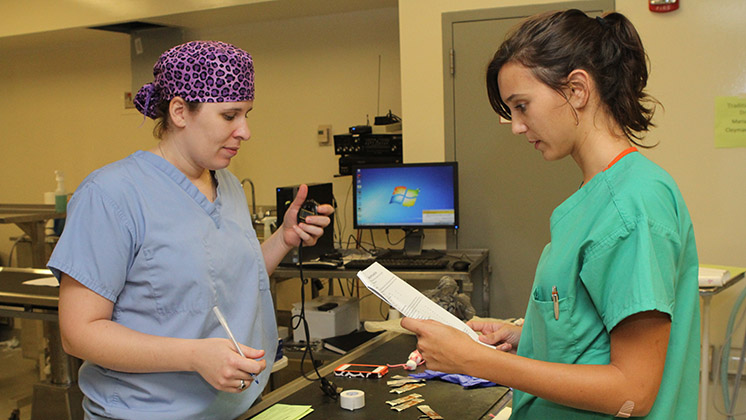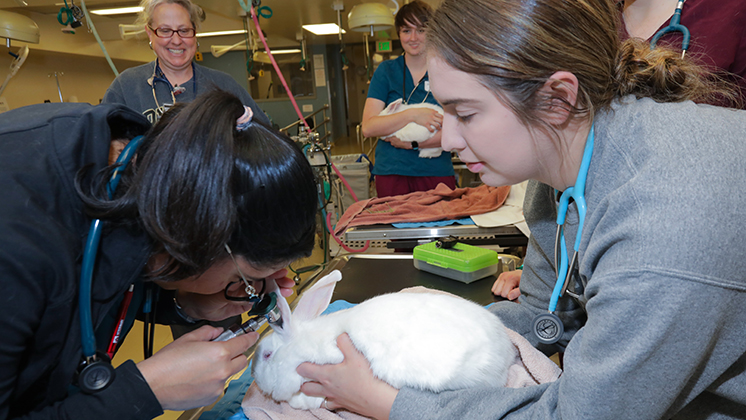
by Kelsey Wirt, MS, LVT and Josh L. Clark, MS, RVT
The rise of technology and digital learning has made it possible for prospective vet techs to complete their education online. There are AVMA accredited vet tech programs that are fully online. As with any educational choice, online vet tech programs come with both advantages and disadvantages.
When considering online vs. traditional vet tech programs, it's essential to evaluate your learning style, career goals, and personal circumstances. Be sure to choose an AVMA accredited program, whether online or in-person, to ensure that you are eligible to become credentialed when you graduate.
Learn more about Purdue's Veterinary Nursing Distance Learning Program
Find your calling as a Purdue Veterinary Nurse!
Not quite ready to apply? Connect with us to learn more.

Explore the contrasting paths of becoming a veterinarian versus a veterinary technician, weighing factors like education, financial implications, and hands-on animal care. This comprehensive guide aids in discerning the best-fit veterinary career, backed by insights from Purdue's esteemed programs.
Read more
Discover how to transform your vet assistants into vet techs, boosting both career growth and practice quality, while enhancing revenue opportunities.
Read more
Learn about the differences and similarities between a veterinary technician (vet tech), veterinary technologist, and veterinary nurse.
Read more